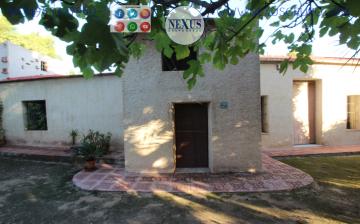You do not have any favourites
News
-
FOR SALE HOMES AND OTHER PROPERTIES WITH DISCOUNTS OF UP TO 64%
21st July 2023 -
EXCHANGE HOUSE IN SUMMER TO SAVE ON VACATIONS: WHERE YOU CAN DO IT AND TIPS
20th July 2023 -
WHAT IS THE CHEAPEST WEEK TO TRAVEL THIS SUMMER?
19th July 2023 -
23J ELECTIONS: HOUSING ANALYSIS AND PROPOSALS
16th July 2023 -
HE SALE OF HOMES MODERATES ITS FALL: IT DECREASES BY 6.4% IN MAY, ITS FOURTH CONSECUTIVE MONTH OF DECLINES
14th July 2023 -
THE RENTAL PRICE IN EUROPE MODERATES IN THE SECOND QUARTER
10th July 2023 -
SMALL HOUSES: 12 IDEAS TO DECORATE YOURS AND THE 5 BEST INTERIOR DESIGNERS' TIPS
9th July 2023 -
WHAT TO DO IF YOUR HOME IS OCCUPIED WHILE YOU'RE ON VACATION?
8th July 2023 -
HACIENDA ISSUES A NOTICE TO ALL HOMEOWNERS
7th July 2023 -
BEST MORTGAGES | JULY 2023
6th July 2023
The swift system and other financial sanctions on Russia: what they consist of and what their effects are
12th March 2022
Sanctions against Russia are the weapon of choice for international diplomacy to avoid a confrontation on the ground that would lead to World War III. The goal is to financially isolate the country led by Putin to limit the duration of the attack on Ukraine. Let's see, in addition to the sanctioning measures that are already in force, what are the financial sanctions, such as the exclusion of the Swift and the downgrade of the sovereign debt rating, and what effects they will have.
What is the Swift system and what does it mean to exclude Russia from it
Swift is the international messaging network for interbank payments that guarantees the exchange of capital between countries. Acronym for Society for Worldwide Interbank Financial Telecommunication (Society for World Interbank Financial Telecommunication) and founded in Belgium in the 70s, it is a messaging system between more than 11,000 banks and financial institutions that allows the payment of goods and services of a country to another, guaranteeing security and speed in transactions.
Basically, it is a kind of chat that connects international banks with each other, identifying them with the "Swift code" that each one can find among the credentials of their current account. When a transaction is to be carried out between a bank account and another bank account located in a different country, the paying entity will send an encrypted message to the receiving bank with the credentials so that the exchange of money can be carried out safely.
Excluding Russia from this system means preventing it from both making and receiving international payments. On the one hand, this would inhibit Russia's access to capital, which can be deposited abroad in the form of cash, securities, bonds, etc., and which is used to keep domestic banks alive. But it would also prevent the collection of the services provided, for example, of the gas supplied to Europe (Russian income from energy exports is almost half of the total), which in this way could not pay it. This would presumably have the boomerang effect of cutting off supply and creating an energy crisis in the Old Continent. Spain has greater autonomy with respect to Europe in terms of gas supply from Russia, since only 10.7% of natural gas imports to Spain come from this country, but what it cannot control is the rise in prices in the European market.
Another consequence of the exclusion of Russia from Swift is that this measure also affects non-Russian banks based in Putin's territory. Or even European banks, which are very exposed to Russia. Therefore, the ban on Russia from participating in the Swift could only be partial, without including this type of situation.
It must be said that there is nothing to prevent Russia, once out of Swift, from using alternative interbank payment systems to withdraw capital from other non-hostile countries, such as China (which uses CIPS, the equivalent of Swift), or using cryptocurrencies to circumvent any problem of physical money.
